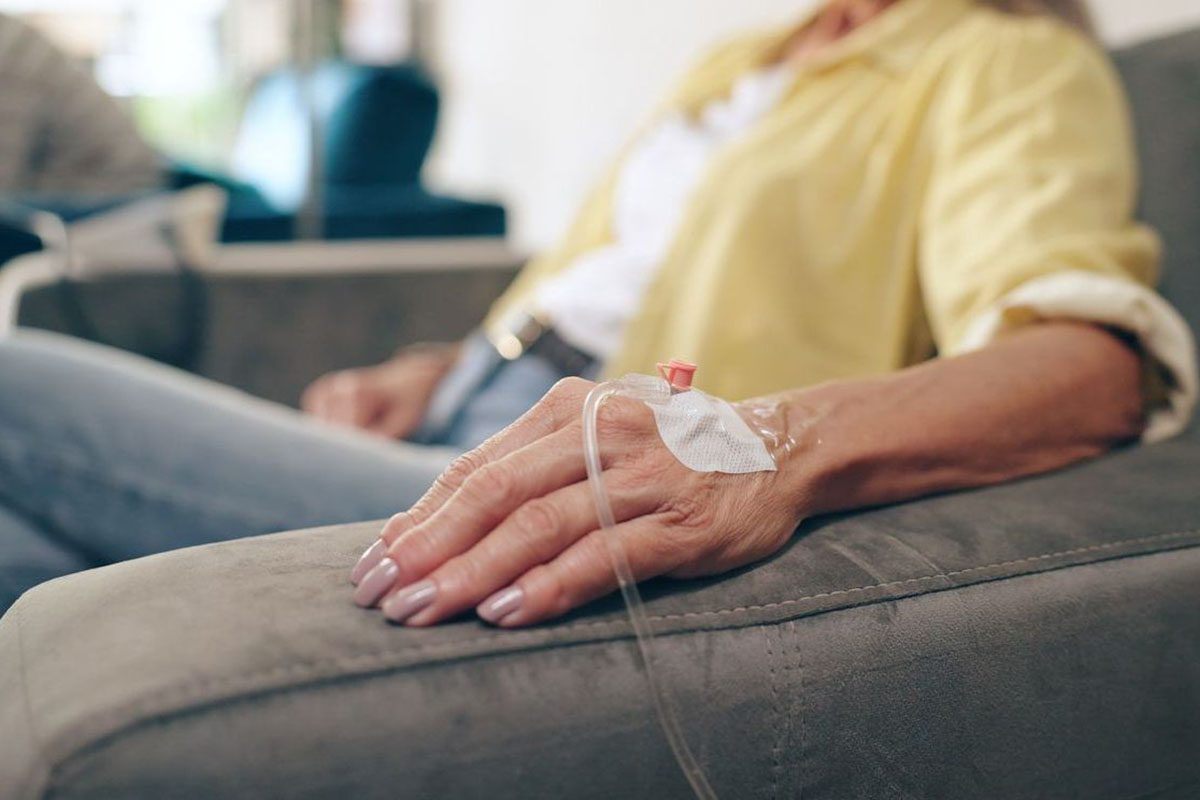ABSTRACT
Background: Deep brain stimulation (DBS) for treatment-refractory obsessive-compulsive disorder (OCD) is effective in half of patients, but also is invasive and labor-intensive.
Objective: Selecting probable responders beforehand would more optimally allocate treatment resources and prevent patients’ disappointment. Some centers use clinical and demographic predictors to exclude patients from DBS treatment, but the evidence base remains uncertain.
Methods: This observational cohort study examined the association of baseline demographic and disease characteristics with a 1-year prospective course of OCD and depressive symptoms in a cohort of 70 consecutive patients who received DBS of the ventral anterior limb of the internal capsule (vALIC-DBS) for OCD according to DSM-IV or DSM-5 criteria between April 2005 and October 2017. Baseline characteristics and symptom decrease were analyzed using Fisher exact tests and binary logistic regression to examine whether they could predict individual response (> 35% reduction in Yale-Brown Obsessive Compulsive Scale score and 50% reduction in Hamilton Depression Rating Scale score, respectively).
Results: Insight into illness was the only significant predictor of individual response, with a positive predictive value of 84.4%, while the negative predictive value was 44.0% (b = 0.247, χ21 = 5.259, P = .022). Late-onset OCD was associated with more symptom decrease (β = –0.29; 95% CI, −0.53 to −0.04; P = .023) and comorbid personality disorder with less symptom decrease over time (β = 0.88; 95% CI −0.29 to 1.47; P = .004), but they could not significantly predict vALIC-DBS response. A later age at onset, comorbid personality disorder, and insight into illness were associated with clinical outcomes after vALIC-DBS, but predictive values were not large enough to facilitate clinical patient selection.
Conclusions: Clinical and demographic factors cannot yet predict outcome and should not be used to exclude patients from treatment with vALIC-DBS. These first individual prediction analyses for vALIC-DBS response in OCD are important, given that some centers up until now still exclude patients based on clinical characteristics such as comorbid personality disorders.
Members Only Content
This full article is available exclusively to Professional tier members. Subscribe now to unlock the HTML version and gain unlimited access to our entire library plus all PDFs. If you're already a subscriber, please log in below to continue reading.
References (19)

- Denys D, Graat I, Mocking R, et al. Efficacy of deep brain stimulation of the ventral anterior limb of the internal capsule for refractory obsessive-compulsive disorder: a clinical cohort of 70 patients. Am J Psychiatry. 2020;177(3):265–271. PubMed CrossRef
- Alonso P, Cuadras D, Gabriëls L, et al. Deep brain stimulation for obsessive-compulsive disorder: a meta-analysis of treatment outcome and predictors of response. PLoS One. 2015;10(7):e0133591. PubMed CrossRef
- Graat I, Mocking R, Figee M, et al. Long-term outcome of deep brain stimulation of the ventral part of the anterior limb of the internal capsule in a cohort of 50 patients with treatment-refractory obsessive-compulsive disorder [published online ahead of print August 28, 2020]. Biol Psychiatry. PubMed CrossRef
- Denys D, Mantione M, Figee M, et al. Deep brain stimulation of the nucleus accumbens for treatment-refractory obsessive-compulsive disorder. Arch Gen Psychiatry. 2010;67(10):1061–1068. PubMed CrossRef
- Raymaekers S, Vansteelandt K, Luyten L, et al. Long-term electrical stimulation of bed nucleus of stria terminalis for obsessive-compulsive disorder. Mol Psychiatry. 2017;22(6):931–934. PubMed CrossRef
- Mantione M, Nieman DH, Figee M, et al. Cognitive-behavioural therapy augments the effects of deep brain stimulation in obsessive-compulsive disorder. Psychol Med. 2014;44(16):3515–3522. PubMed CrossRef
- Goodman WK, Price LH, Rasmussen SA, et al. The Yale-Brown Obsessive Compulsive Scale, I: development, use, and reliability. Arch Gen Psychiatry. 1989;46(11):1006–1011. PubMed CrossRef
- Hamilton M. A rating scale for depression. J Neurol Neurosurg Psychiatry. 1960;23(1):56–62. PubMed CrossRef
- Eisen JL, Phillips KA, Baer L, et al. The Brown Assessment of Beliefs Scale: reliability and validity. Am J Psychiatry. 1998;155(1):102–108. PubMed CrossRef
- Hamilton M. The assessment of anxiety states by rating. Br J Med Psychol. 1959;32(1):50–55. PubMed CrossRef
- Lobbestael J, Leurgans M, Arntz A. Inter-rater reliability of the Structured Clinical Interview for DSM-IV Axis I Disorders (SCID I) and Axis II Disorders (SCID II). Clin Psychol Psychother. 2011;18(1):75–79. PubMed CrossRef
- Maffei C, Fossati A, Agostoni I, et al. Interrater reliability and internal consistency of the structured clinical interview for DSM-IV axis II personality disorders (SCID-II), version 2.0. J Pers Disord. 1997;11(3):279–284. PubMed CrossRef
- American Psychiatric Association. Diagnostic and Statistical Manual of Mental Disorders. Fourth Edition, Text Revision. Washington, DC: American Psychiatric Association; 2000:34.
- Schmand B, Bakker D, Saan R, et al. The Dutch Reading Test for Adults: a measure of premorbid intelligence level [in Dutch]. Tijdschr Gerontol Geriatr. 1991;22(1):15–19. PubMed
- Gueorguieva R, Krystal JH. Move over ANOVA: progress in analyzing repeated-measures data and its reflection in papers published in the Archives of General Psychiatry. Arch Gen Psychiatry. 2004;61(3):310–317. PubMed CrossRef
- Anholt GE, Aderka IM, van Balkom AJLM, et al. Age of onset in obsessive-compulsive disorder: admixture analysis with a large sample. Psychol Med. 2014;44(1):185–194. PubMed CrossRef
- Hazari N, Narayanaswamy JC, Arumugham SS. Predictors of response to serotonin reuptake inhibitors in obsessive-compulsive disorder. Expert Rev Neurother. 2016;16(10):1175–1191. PubMed CrossRef
- Fals-Stewart W, Lucente S. An MCMI cluster typology of obsessive-compulsives: a measure of personality characteristics and its relationship to treatment participation, compliance and outcome in behavior therapy. J Psychiatr Res. 1993;27(2):139–154. PubMed CrossRef
- Goodman WK, Foote KD, Greenberg BD, et al. Deep brain stimulation for intractable obsessive compulsive disorder: pilot study using a blinded, staggered-onset design. Biol Psychiatry. 2010;67(6):535–542. PubMed CrossRef






